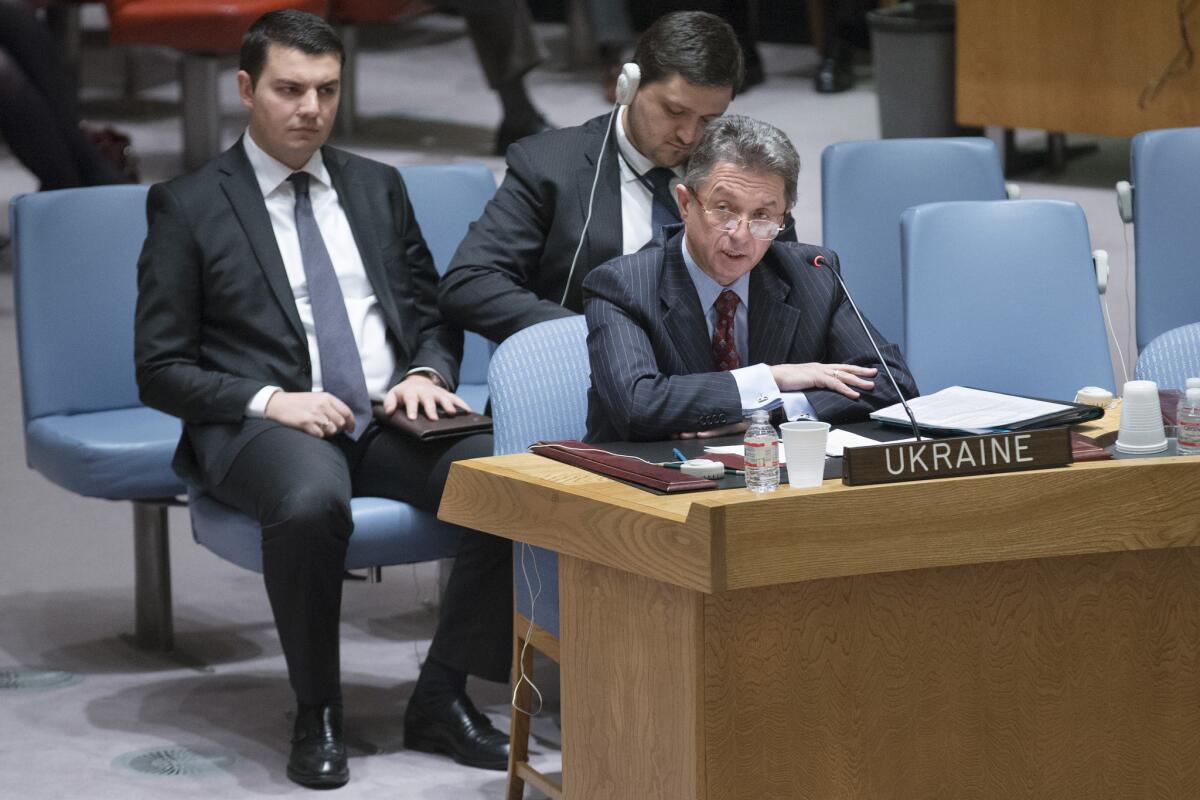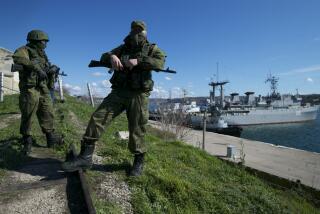Russia alone as U.N. vetoes resolution calling Crimea vote illegal

- Share via
WASHINGTON – Russia stood alone Saturday in vetoing a United Nations Security Council resolution declaring illegal a Russian-sponsored referendum on whether Crimea should secede from Ukraine.
In an illustration of Russia’s isolation on the issue, 13 council members voted for the U.S.-sponsored resolution at the session in New York. China, which almost always allies itself with Russia on council votes, abstained.
It has been clear for days that the resolution would be vetoed. But U.S. officials and allies pushed ahead with it to put Moscow in a difficult spot in hopes of convincing it not to annex Crimea following the Sunday referendum.
But Russia, which sent troops into Crimea in late February, showed no sign of relenting.
Western officials were unsparing in their criticism of Russia, which they accused of using the referendum to legitimize a seizure of territory that they believe is forbidden under international law and the U.N. Charter.
“Russia has vetoed the U.N. Charter,” said Gerard Araud, the French ambassador to the United Nations.
Samantha Power, the U.S. ambassador to the United Nations, said Russia’s veto was “an accomplice to unlawful military-incursion intervention…. It cannot deny the truth displayed today that there is overwhelming international opposition to its dangerous actions.”
Power cast Russia’s action in Cold War terms, recalling the Soviet military interventions in Czechoslovakia in 1968 and Hungary in 1956 to snuff pressure for independence there.
Vitaly I. Churkin, the Russian ambassador to the United Nations, described the referendum as a step needed to allow the majority ethnic Russian population of Crimea to fulfill a desire for independence from the illegitimate new government in Kiev. The interim government was formed when Russian-backed former President Viktor Yanukovich fled Ukraine last month.
China made clear that it was reluctant to part company with Russia, saying that it shared Moscow’s view that the West pushed for the Ukrainian uprising. But China, which has long struggled against demands for independence by the Taiwanese, Tibetans and others, did not want to be seen supporting self-determination by breakaway groups.
U.S. officials are warning that they will begin imposing economic penalties on Russia, perhaps as soon as Monday, if the referendum is carried out, and that other, tougher sanctions could follow.
Some analysts are warning that Russian President Vladimir Putin, who deeply resents American power, could retaliate by halting cooperation on top-priority U.S. efforts, such as arms control agreements, and international diplomacy aimed at curbing Iran’s nuclear program.
paul.richter@latimes.com
More to Read
Sign up for Essential California
The most important California stories and recommendations in your inbox every morning.
You may occasionally receive promotional content from the Los Angeles Times.














